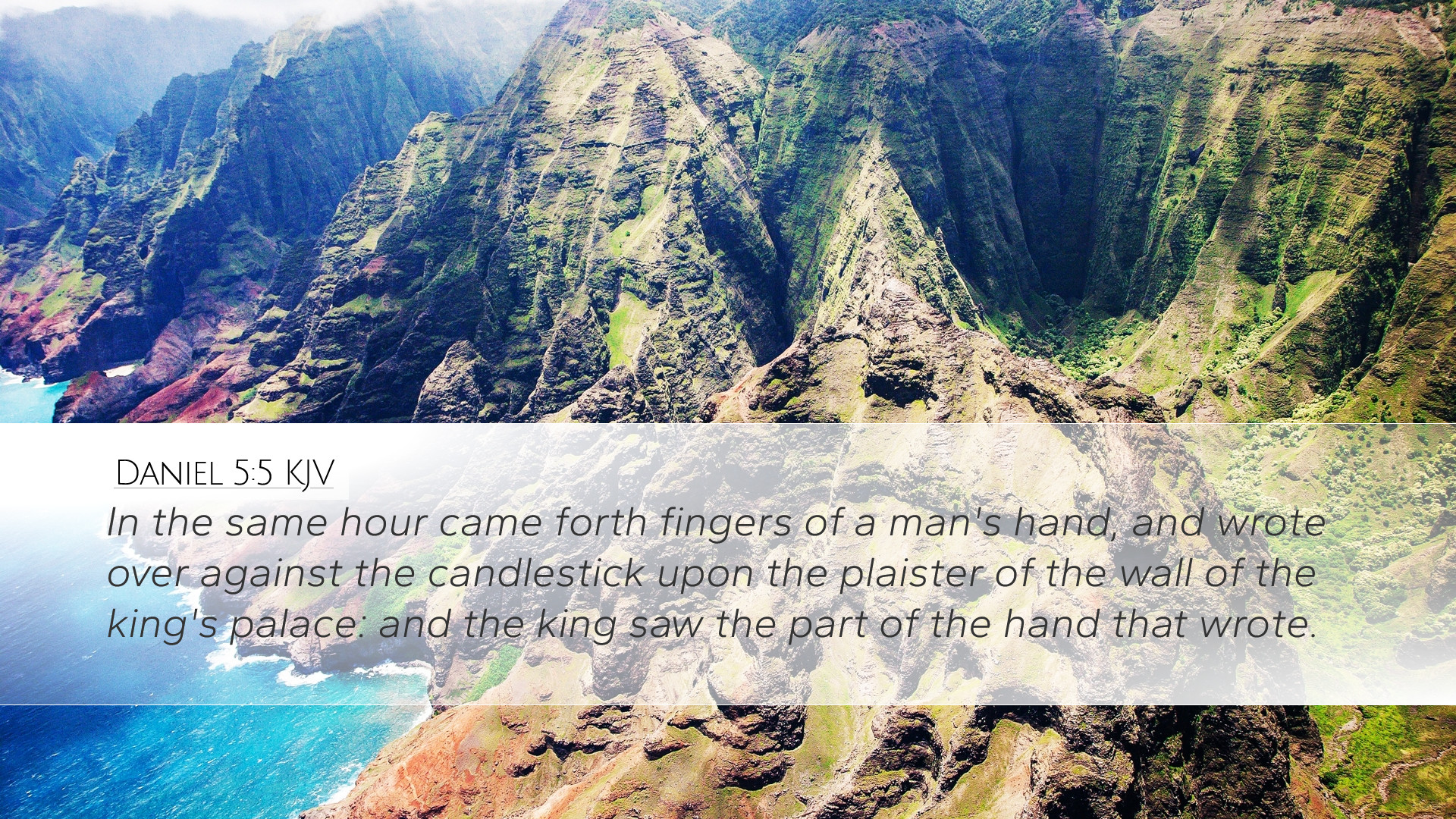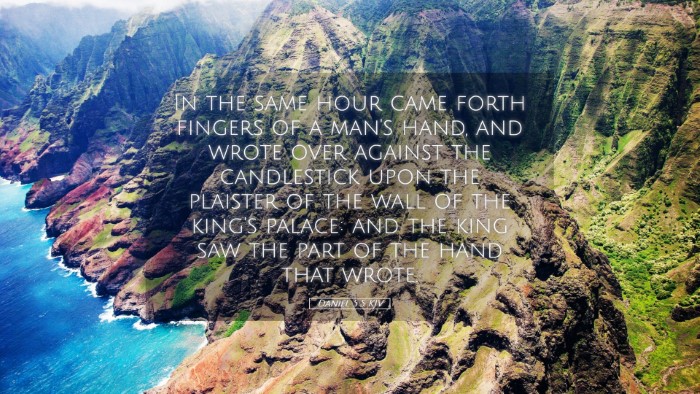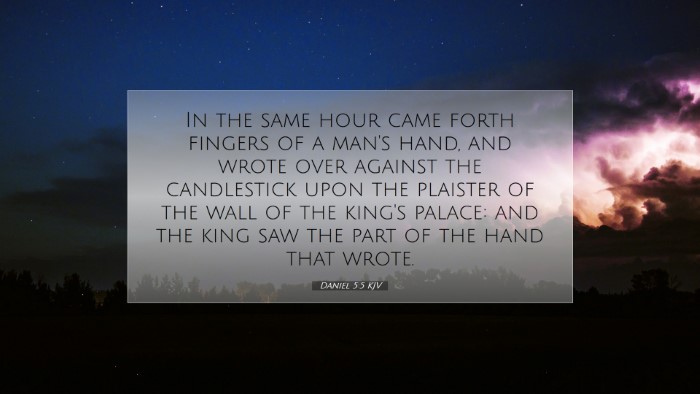Commentary on Daniel 5:5
In this pivotal verse, Daniel 5:5, we witness a remarkable moment in the life of King Belshazzar of Babylon. The text reads:
“In the same hour came forth fingers of a man's hand, and wrote over against the candlestick upon the plaster of the wall of the king's palace: and the king saw the part of the hand that wrote.”
Context and Setting
The event occurs during a great feast hosted by King Belshazzar, where he and his nobles indulge in revelry while Jerusalem lies in ruins and God’s people are in travail. This banquet serves as a backdrop for divine judgment, showcasing the hubris and moral decay of Babylon.
Matthew Henry highlights the irony of this moment. Despite Babylon’s towering might, it stands in stark contrast to the authority of God, which is about to be demonstrated through the mysterious writing. The passage serves as a vital reminder of the immediacy of God's judgment on nations and individuals alike.
The Handwriting on the Wall
Albert Barnes emphasizes the supernatural nature of this event. The appearance of a hand, devoid of a body, writing upon the wall signifies a clear intervention by God. This marvel is designed to instill fear and provoke thought among those who witness it. It contrasts with the frivolity of the feast, illustrating that while men feast, God is profoundly engaged in governing history and individuals’ fates.
The act of writing over against the candlestick also suggests a divine illumination. Adam Clarke notes the symbolism of the candlestick, representing light amidst darkness, indicating that even in moments of spiritual blindness, God continues to make His presence known, bringing light to the impending judgment.
The King's Reaction
As the fingers write, Belshazzar's reaction is one of terror. Matthew Henry explains that the king's dread signifies an awareness of his own moral and spiritual failures. The panic he experiences reveals a heart that, despite its earthly power, is vulnerable in the face of divine authority.
- Fear of Judgment: Belshazzar’s physical response — knees knocking, countenance changing — reflects the realization of divine accountability. It serves as a poignant reminder that earthly kings and rulers are ultimately subject to the judgment of God.
- Conscience Pricked: It can be posited that the king's reaction stems from a guilty conscience, perhaps recalling the past lessons of Israelites’ suffering and the consequences of defiance against God.
Theological Implications
This event carries significant theological implications. It assures us that God is not detached from human affairs; instead, He actively intervenes and communicates His will — often unexpectedly. Albert Barnes points out that this principle resonates throughout Scripture, particularly in times of national crisis when God brings nations to account for their actions.
The writing itself can be interpreted as a message not only of judgment but also of a direct communication from God. The visibility of the act indicates that God’s messages are accessible to all, requiring those in power to respond appropriately.
Lessons for Today
For pastors, students, and scholars, this verse offers several lessons:
- Awareness of Divine Sovereignty: The story compels current leaders and believers alike to acknowledge God’s sovereignty over nations and individual lives.
- Call to Righteousness: Belshazzar’s negligence and disdain for sacred things remind contemporary Christians about the importance of honoring God in actions and policies.
- Visibility of God’s Presence: In a world that often seems distant from God, this scripture serves as a beacon of hope, illustrating that God is very much involved in our lives, often in ways we may not expect.
Conclusion
Daniel 5:5 encapsulates a powerful moment of divine revelation and judgment. By combining insights from esteemed commentators such as Matthew Henry, Albert Barnes, and Adam Clarke, we gain a deeper understanding of God's active role in history. This verse not only recounts a historical incident but also holds timeless truths relevant to our faith journey, urging us to seek clarity, accountability, and light in every form of darkness.


